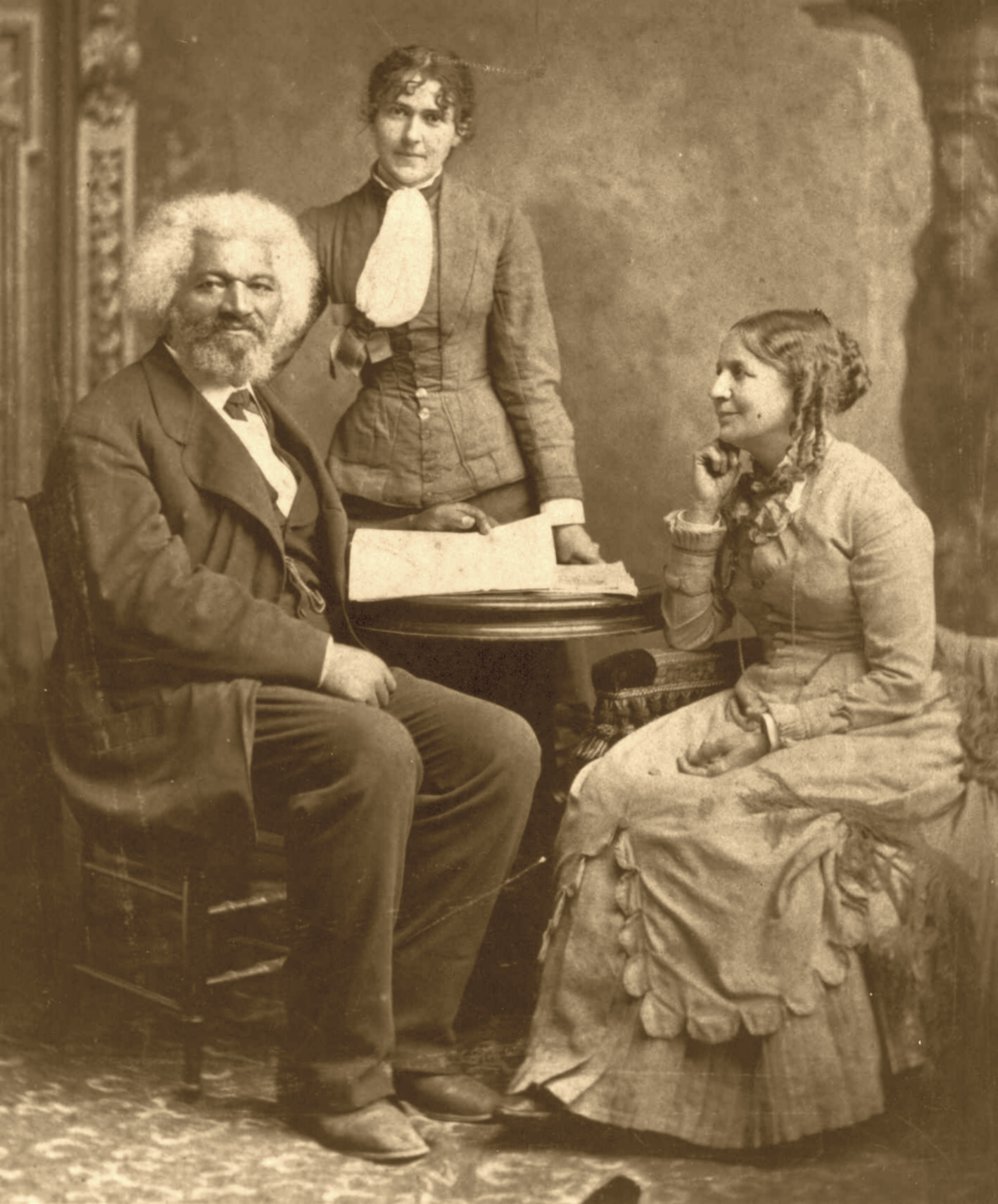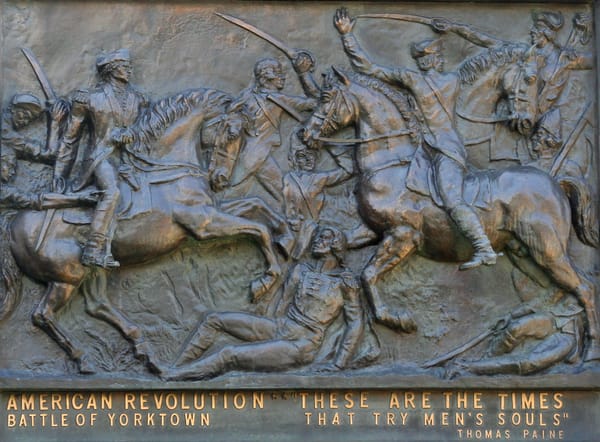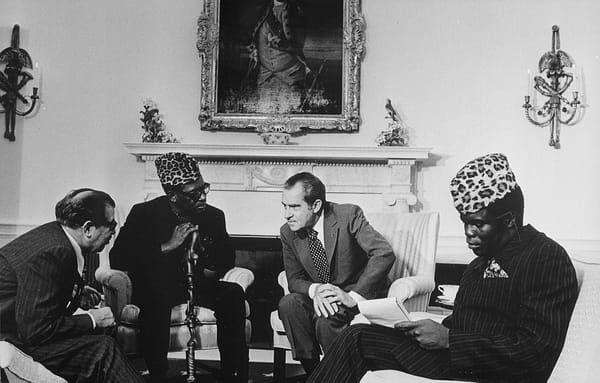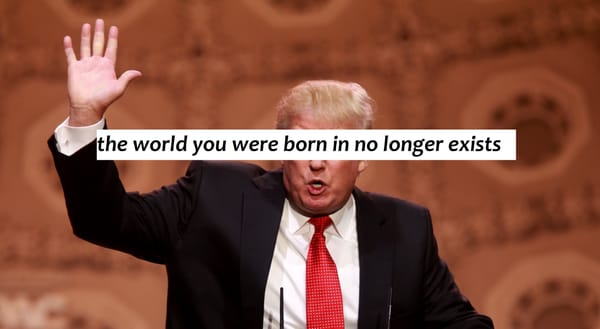Misappropriating Douglass
Frederick Douglass deserves every bit of the accolades heaped upon him, but he was not a libertarian—and this isn’t a close call.

With Juneteenth upon us, we can put good money on encountering articles by libertarians and conservatives reminding us of Frederick Douglass, the legendary escaped slave, abolitionist, and statesman of the 19th century. These pieces will call Douglass a “classical liberal” and insinuate that if he were alive today, he would call himself a libertarian, if not a proud Republican (it’s the party of Lincoln, after all). Douglass deserves every bit of the accolades heaped upon him, but he was not a libertarian—and this isn’t a close call. Douglass is another example of a genuinely heroic figure—like Martin Luther King Jr—who has been hijacked by the political right that wants to claim great figures without grappling with what made them great in the first place.
Proving someone does not belong to a particular worldview is a slippery thing. There are, after all, different kinds of libertarians, and they don’t agree on everything. Yet there are generally favored policies, like free trade and open borders, low to no taxes, and minimal economic regulation and redistribution. There are also moods, like a general hostility to government, a suspicion of democratic politics, a tendency to frame taxes as theft and regulation as the use of force, and a contempt for social justice. Frederick Douglass simply doesn’t at all fit this picture.
Democrat (small-d)
A few years after escaping slavery, Douglass fell in with the famed abolitionist William Lloyd Garrison. Garrison was a libertarian anarchist who believed that government was illegitimate and that engaging in political action by voting or holding office violated his pacifism. Garrison saw the Constitution as an inherently pro-slavery document—a “compact with Hell”—and insisted the abolition of slavery should be brought about by non-violent, non-political means of moral persuasion. Douglass advocated these same positions in his antislavery activism until abruptly breaking with them in 1855. Douglass now argued that the Constitution—a “radical anti-slavery document”—was an invaluable weapon in the abolitionist arsenal, and that voting, political organization, and party politics were all crucial in the struggle against slavery.
Douglass favored not only democratic politics but universal suffrage. This is notable in the 19th century when even progressive liberals like John Stuart Mill believed certain superior persons and classes deserved greater voting power and the votes of those deemed imbeciles or otherwise unfit should be suppressed. Douglass held that this was exactly backward: the ballot was the necessary means to attain the education and faculties that would foster responsible citizenship. Libertarians have, for the most part, not updated their views on democracy and voting. You can fill a shelf with libertarian titles like Against Democracy, The Myth of the Rational Voter, and Democracy: the God That Failed.
Garrison’s arguments against politics are recognizable in libertarians today. Libertarian anarchists talk about using “neither ballots nor bullets,” the idea that politics is simply violence by other means, and all government action violates a “non-aggression principle.” But Douglass’s view of government looks nothing like the night watchman state advocated by those libertarians who do accept the need for a state.
Instead, Douglass takes a standard liberal approach to representative government. Douglass believed human nature impels us to live together in society, yet we are always liable to evil and selfishness even though our goodness outweighs our wickedness. We’re endowed with capabilities of reason and judgment with which we can fashion laws and institutions to foster the good and limit the selfish. As to the purview of government lawmaking,
whatever serves to increase the happiness, to preserve the well-being, to give permanence, order and attractiveness to society, and leads to the very highest development of human perfection, is, unless positively prohibited by Divine command, to be esteemed innocent and right.
In other words, people are naturally social, but because we have bad tendencies in addition to our good tendencies, we form governments and authorize them to pass laws within a wide latitude.
Libertarians view the state as a more powerful and more important source of oppression than other oppressors, institutional or private. But for Douglass, the institution of slavery itself was far more sinister, and “righteous civil government” was an essential means to “establish justice in the world” and end oppression. Government wasn’t in itself an evil for Douglass, necessary or otherwise. Government is just one way we come together to solve public problems.
Egalitarian
Inequality itself—not just political inequality but economic inequality—was an ever present concern for Douglass. In 1856, even before the highest end of abolishing slavery was achieved, Douglass warned of the danger of wealth accumulation and wealth inequality. Accumulating wealth in the hands of a few, “instead of being distributed, as it should be, among the mass, rendering none rich, allowing none to remain poor,” was both the principal cause of poverty and a “tool of the tyrant, the readiest means by which liberty is overthrown.”
Some early classical liberals like Benjamin Constant and Richard Cobden (a man Douglass greatly esteemed) believed that a laissez-faire regime would itself undermine or prevent malign concentrations of wealth. Douglass may have held similar views. With some exceptions, like land grants and compensation for the victims of the Freedman’s Bank implosion, Douglass wasn’t forthcoming with policy details.
The characteristic attitude toward economic inequality of libertarians today has shifted. These insist that as long as society in general is gaining in wealth, we shouldn’t care that a few lucky and talented individuals become ultra wealthy. Even for “bleeding heart libertarians” more sensitive to social justice, wealth inequality as such is not usually seen as a fundamental problem; the only problem is wealth acquired by force, fraud, or the crony capitalism of political favors and lobbying.
Douglass would call attention to inequality again after the Civil War, as (free) labor unrest gained national attention. In The Labor Question, one of a handful of articles that touched on labor issues in the New National Era newspaper (1870–1874), Douglass cuts to the heart of the matter: the happiness of humanity supersedes the interests of property, and no society deserves to continue that fails to achieve prosperity for the poorest.
The question, whether civilization is designed primarily for Man or for Property, can have but one direct answer, whatever may be the methods each may think desirable by which to attain that end. The happiness of man must be the primal condition in which any form of society alone can found a title to existence. The civilization, then, looked at in its material aspect alone, which on the one hand constantly increases its wealth-creating capacities and on the other as steadily leaves out of the direct benefits thereof at least seven-tenths of all who live within its influence, cannot have realized the fundamental condition of its continuance. That society is a failure in which the large majority of its members, without any direct fault of their own, would, if any accidental circumstances deprived them for a month of the opportunity of earning regular wages, be dependent upon private or public charity for daily bread.
Douglass was vague on policy specifics, but one policy he consistently favored is rather awkward for libertarians: protectionism, specifically in the interest of sustaining high wages for American workers. Douglass wrote several articles for the New National Era attacking free trade, with titles like “Free Trade Against Labor” and “The War Upon Labor,” in which he argued that free trade pitted American labor against the “pauper labor of Europe” and “would turn every American laborer into a pauper.”
Nor was redistribution off the table. In his later years (1880s) Douglass regretted not signing on to Charles Sumner and Thaddeus Stevens’s proposal to redistribute the land of the slave owners amongst the liberated blacks. As conditions for blacks in the South worsened as Jim Crow set in, Douglass shifted to supporting some limited emigration to other parts of the country, but he believed white Americans owed blacks material aid in this endeavor.
They need and ought to have material aid of both white and colored people of the free states. A million dollars devoted to this purpose would do more for the colored people of the south than the same amount expended in any other way. There is no degradation, no loss of self-respect, in asking this aid, considering the circumstances of these people. The white people of this nation owe them this help and a great deal more.
A powerful federal state
Libertarians who aren’t full anarchists fantasize about reducing the size of the government to the point where it can be “drowned in a bathtub.” But Douglass wanted a powerful federal government capable of keeping states under the sway of the slave power in check. In particular, Douglass favored a strong and assertive federal government capable of—among other non-libertarian policies like alcohol prohibition—enforcing affirmative action and quashing racial discrimination, even in the quasi-private domain of commerce.
In a Republican party speech in 1871, Douglass explicitly endorsed all-else-equal preference for black individuals to office, what we today refer to as affirmative action.
While I am for making no distinction, I am one of those who believe that whenever, and wherever, there is an office to be had, and a white applicant equally eligible, and equally available to obtain it; that while I am in favor of no distinctions on account of color, remembering the stripes, remembering the 250 years of bondage in this land, through which the colored man has been dragged, remembering that 250 years he has not had the right to learn to read the name of the God that made him, and that every man in the land has been at liberty to kick him, and to disregard his rights, he having no rights which a white man was bound to respect … I say, whenever the black man and the white man, equally eligible, equally available, equally qualified for an office, present themselves for that office, the black man, at this juncture of our affairs, should be preferred. That is my conviction.
Emphasis mine. Douglass was explicit that the anti-discrimination measures in civil rights law don’t apply just to the state, but to oppressive conditions that arise even from the discriminatory practices of private citizens. He railed against the Supreme Court’s nullification of the 1875 Civil Rights Act.
What does it matter to a colored citizen that a State may not insult and outrage him, if a citizen of a State may? The effect upon him is the same, and it was just this effect that the framers of the Fourteenth Amendment plainly intended by that article to prevent. It was the act, not the instrument, which was prohibited. It meant to protect the newly enfranchised citizen from injustice and wrong, not merely from a State, but from the individual members of a State. It meant to give him the protection to which his citizenship, his loyalty, his allegiance, and his services entitled him; and this meaning, and this purpose, and this intention, is now declared unconstitutional and void, by the Supreme Court of the United States.
Though they are divided, many libertarians today struggle with the analogous legislation of the Civil Rights Movement of the 1960s. At the very least, libertarians feel an uncomfortable tension between the principle of adults—including business owners—engaging in consensual acts of capitalism with other adults and affirming the rights of minorities to be free from discrimination in the marketplace. Douglass felt no such tension when it came to securing freedom from discrimination.
Social justice warrior
Finally, while there are exceptions, libertarians have long tended to oppose social justice—Friedrich Hayek argued social justice was incoherent and Robert Nozick believed it involved an illiberal imposition of a final pattern on society—and anything that smacks of identity politics. Yet if it isn’t clear from everything I have written above, Douglass was a passionate activist for social justice, from immigrants’ rights and women’s suffrage to the freedom and comprehensive welfare of black people—his people, as he regularly stated—in America and abroad. In The Life and Times of Frederick Douglass, his final autobiography, Douglass stated,
My cause, first, midst, last, and always, whether in office or out of office, was and is that of the black man; not because he is black, but because he is a man, and a man subject in this country to peculiar wrongs and hardships.
Usually leaving off the bit about peculiar wrongs and hardships, as Timothy Sandefur does in his PragerU video, libertarians love this line because it seems to support a “colorblind” interpretation. But this is a clear misinterpretation, the same that afflicts libertarians and conservatives reacting negatively to the Black Lives Matter movement. We must attend to the black person, in particular, in context, in eagle-eyed scrutiny of their lives and struggles, because that is the only way that we can counteract the “peculiar wrongs and hardships” that stifle the freedom and dignity all individuals deserve.
It would be a curious kind of libertarian who embraced majoritarian democracy with enthusiasm, who advocated for a central state powerful enough to suppress private discrimination and enforce affirmative action, and who campaigned against free trade in the interests of labor power. Taken together, these facets of Douglass’s worldview stretch the libertarian ideology past the breaking point.
Of course, it is perfectly fitting that libertarians find inspiration in Douglass’s life and works. And libertarians can rightfully look to Douglass’s occasional libertarian expressions. Those who still hold to the traditional libertarian support for open borders will find a powerful resource in Our Composite Nationality. Likewise, libertarians will find a partial ally in Douglass’s skepticism toward labor unions, though Douglass might have welcomed the more race- and gender-inclusive labor unions of today. Objectivists certainly have reason to appreciate Douglass’s promethean ardor for scientific and technological progress, as well as his lofty vision of the “self-made man.” But these qualities alone do not a libertarian make.
It might be asked what’s the harm in a little appropriation between friends. The primary harm is that it tends to reduce Douglass’s complex political philosophy to a set of ideas that are easily digestible to libertarians. The same could be said of any leftists who tried to insist that Douglass was a socialist based merely on his concerns about inequality and his easy fraternization with socialists in his newspapers. But such a leftist appropriation hasn’t happened, at least not with any traction. Libertarians, and to some extent conservatives, seem to have cornered the market on Douglass, so that on the radical left Douglass is, whatever the narrative power of his personal story, assumed to be little more than a 19th century incarnation of a Thomas Sowell or Glenn Loury. Libertarians thus cheat themselves of an opportunity to expand their ideological horizons while at the same time making Douglass toxic—or just gauche—to the left.
But there is also the harm to Douglass himself, who deserves better than to be intellectually disinterred by ideological graverobbers.




